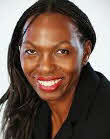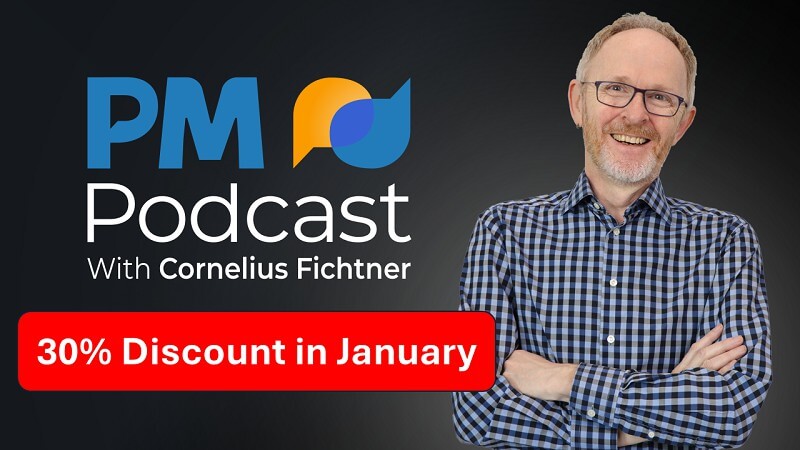Episode 227: John Maxwell’s 5 levels of leadership: Your Key to Project Success (Premium)
This episode is reserved for subscribers of the Premium Podcast. Learn how to subscribe to the Premium Podcast to access this interview and transcript...
This episode is sponsored by The Agile PrepCast for The PMI-ACP® Exam:

Whether you are a project manager, technical lead, team leader--no matter what your official title, you’re expected to get the project completed through others. Project success depends upon your abilities as a coach, team builder, and skillful motivator. There are few natural born leaders. The top project managers made the journey to effective leader by using their talent and focusing on learning the important skills needed to succeed, and indeed we've looked at many of those skills as part of our leadership podcasts in the past.
In this interview with Carla Fair-Wright (Optimal Consulting - www.opc-houston.com) we will will cover the 5 levels of leadership defined by internationally recognized leadership expert John C. Maxwell. You’ll learn what they are and how to apply them on your own leadership approach.
Episode Transcript
Below are the first few pages of the transcript. The complete transcript is available to Premium subscribers only.
Podcast Introduction
Cornelius Fichtner: Hello and welcome to Episode #227. This is The Project Management Podcast™ at www.project-management-podcast.com and I am Cornelius Fichtner.
This is once again one of our premium episodes recorded for all you premium subscribers. Thank you so much for your support and don’t forget that you can earn PDUs just for listening to this. Please go to www.project-management-podcast.com/pdu to learn more about it.
Whether you are a project manager, a technical leader, team leader, no matter your official title, you are expected to get the project completed through others. Project success depends upon your abilities as a coach, team builder and skillful motivator. There are a few natural-born leaders. The top project managers made the journey to effective leaders by using their talent focusing on learning the important skills needed to succeed.
In the upcoming interview with Carla Fair-Wright, we will cover the 5 levels of leadership defined by the internationally-recognized leadership expert, John C. Maxwell. You learn what they are and how to apply them on your own leadership approach.
Well then, lead the way and enjoy the interview.
Podcast Interview
Female voice: The Project Management Podcast’s feature Interview: Today with Carla Fair-Wright, President of Houston project management firm, Optimal Consulting.
Cornelius Fichtner: Hello Carla! Welcome back to The Project Management Podcast™.
Carla Fair-Wright: Hello Cornelius. Thank you for having me on the show again.
Cornelius Fichtner: Well last time, we talked about how to recover from mistakes. And now, we want to talk about John Maxwell’s 5 levels of leadership and you claim that they are your key to project success. Now we’ve talked about project leadership a few times here on the Podcast and I usually start out the interviews about leadership pretty much with the same question. I want to do exactly the same with you here: How do you define leadership? What’s your take on it?
Carla Fair-Wright: In my view, a leader is someone who is able to communicate the vision and establish direction. The purpose and the goal of effective leadership is to forge and align what are called ‘high-performance teams’. When you think of management, management really focuses on the planning. Now we have to do that. That’s part of it. But the focus, the singular focus for managers is process and structures and measuring performance. So leadership takes it another level up if you will.
Cornelius Fichtner: Are there any differences in style between managers and leadership?
Carla Fair-Wright: Managers primarily focus on the shorter range directing, controlling whereas leadership is more about enabling, developing, challenging, inspiring trust. Good managers do things right and good leadership does the right thing.
Cornelius Fichtner: Let’s see. We’re going to talk about these 5 levels of leadership. But first of all, they’re from John Maxwell. Frankly, I had never heard of him before. Who is he? How did you come across him? Why did he develop these 5 levels of leadership?
Carla Fair-Wright: John Maxwell is an internationally renowned leadership expert and coach. I came across one of his lectures. I believe it was Success magazine and I was intrigued. The whole idea that leadership is built in blocks that it could be structured that there are levels. As we talked about the levels, the thing to keep in mind is you can be at a certain level in one aspect of your life and yet be in a totally different level of leadership in another. Say in your church organization, you may be a 3 and we’ll get in to that, whereas, perhaps on your new project, you’re a 1. So these things are very fluid and they move from one area to the other.
Cornelius Fichtner: Okay, well that’s good to know because as I was preparing myself, I looked at these 5 levels and I thought that they would be exclusive. You know you are either one or the other so it’s interesting for me to learn right off the bat that you know, you could be a 1 here and a 3 there.
So let’s get started with these 5 then. So we have these 5 levels. Maxwell has structured them bottom up sort of almost like the pyramid that we have from Maslow’s but it’s not a pyramid. It’s more like a stack. And the one that he has right there as number one is “Position’. What does he mean with level 1 of leadership is position?
Carla Fair-Wright: Level 1 leadership, this is when you are assigned a project. You are the project manager for XYZ project. So you have a position. You have a title.
To be an effective leader at this level, you just have to accept the responsibility and exercise that authority with caution of course and assess the strengths and weaknesses of your team. This is a given. Everyone and anyone who is a project manager has this position. This is the level 1. This is the ground floor.
Cornelius Fichtner: I was just going to say that you need that right, even if you move up these 5 levels, if you don’t have the right, if you don’t have the position to lead people to begin with, then well, they’re not going to follow you pretty much no matter what, right?
Carla Fair-Wright: Exactly! Think of them as building blocks one on top of the other.
Cornelius Fichtner: Alright. Then the second one that builds on top of position, is “Permission’. What is that?
Carla Fair-Wright: This is true leadership and this comes from when people accept you as their leader. They want to follow you willingly because you have built relationships.
Cornelius Fichtner: Oh, they give you permission to be their leader? Is that the idea?
Carla Fair-Wright: Give you permission, exactly.
Cornelius Fichtner: Okay, okay. Carry on.
Carla Fair-Wright: So at this level, you want to see life through their eyes. You’re trying to build a rapport. You have to deal wisely with difficult people, we all have them. We all work with them on our teams. It’s a part of life, fact of life. So you have to find techniques that allow you to build those relationships and you’re making your teams successful. You’re setting them for success as well. So the key to success at this level, the permission level, is that you express a genuine concern for your team.
Cornelius Fichtner: So we’re talking about relationship building as well?
Carla Fair-Wright: Yes, these are soft skills but they are so important. We tend, yes…
Cornelius Fichtner: Alright and we tend to?
Carla Fair-Wright: We tend to ignore the soft skills sometimes and I think that’s a lost opportunity for us to leverage some advantages that we may have later on in the project with our team.
Cornelius Fichtner: Okay. We’re moving one stack up to level 3, ‘Production’. Now, what is that?
Carla Fair-Wright: Oh level 3, production. This is so important. Production really qualifies and separates leaders. Some people who merely occupy a leadership position, and what I mean by this is level 3 leaders, their influence intensifies because they are consistently generating results. And we know that this is a great motivator for people to see that there is progress. You’re producing. You’re at the production level and what you’re doing is you’re creating a winning culture so that you get this momentum and you get high morale. In a sense, it’s your reputation and you’re building that and you’re making things happen and this is going to attract high achievers to your team because they want to be a part of that.
Cornelius Fichtner: Alright, so we have level 1 position, level 2 permission, level 3 production. We have level 4 and 5 coming. But before we go there, let me ask you a personal question. Where do you see yourself? Where are you in these 5 levels?
Above are the first few pages of the transcript. The complete PDF transcript is available to Premium subscribers only.
- Last updated on .
- Hits: 17140


